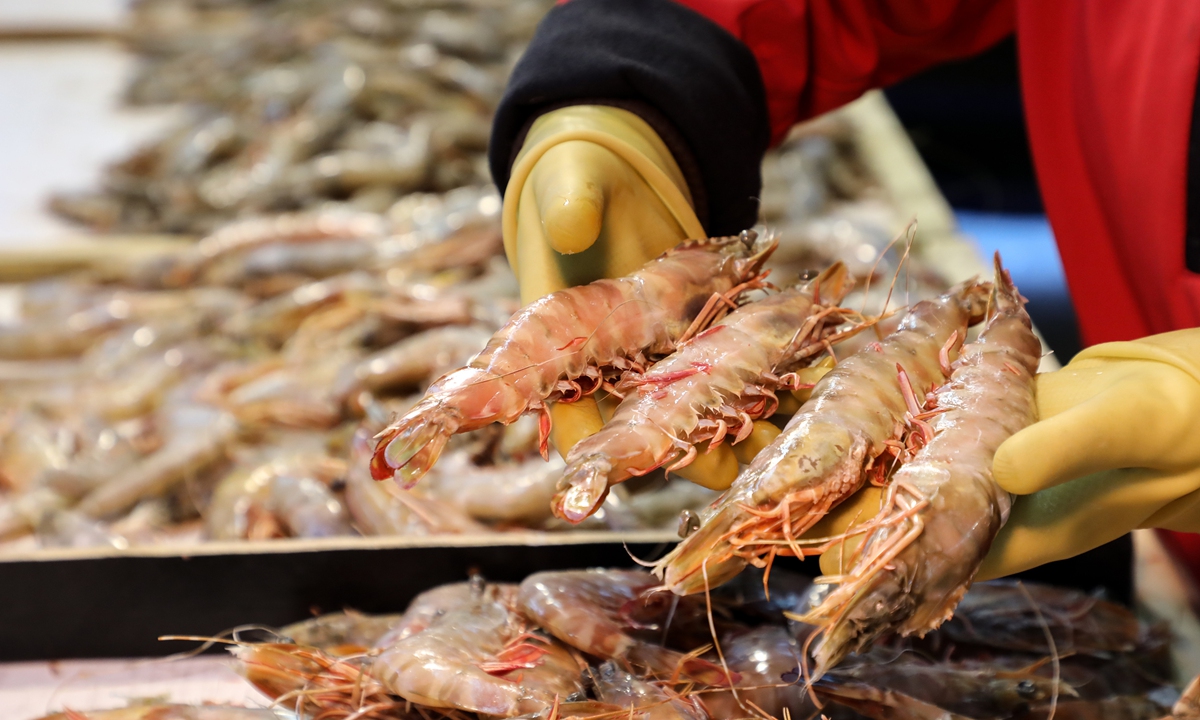China will continue importing frozen food but in smaller amounts: analysts
Source: Global Times Published: 2020/11/15 23:10:25

File photo:VCG
Imported frozen food tested positive for COVID-19 in Xi'an, Northwest China's Shaanxi Province on Saturday, following more than 10 provinces that also reported positive tests for the virus on the packaging of imported frozen food, raising consumer concerns about the safety of imported frozen food products.
Analysts said that the current situation will not greatly affect frozen food imports, while noting that stricter inspection and quarantine should be implemented to ensure the food safety.
China imported a record high volume of meat, according to the Ministry of Commerce. In the first three quarters of this year, China's meat imports reached 7.41 million tons, up 72 percent year-on-year, with a record high value of $23.1 billion, up 83 percent on a yearly basis. Meat imports are expected to reach a record high of 9.5 million tons this year, the ministry said.
While China is a big consumer of meat, its domestic supply has been affected by the African swine fever (ASF) and COVID-19 outbreaks. Analysts said that floods in many places in China this year have further lowered the supply of meat on the market. In order to meet domestic demand for meat, especially pork, China will continue importing meat but in smaller amounts.
Bai Ming, deputy director of the Ministry of Commerce's International Market Research Institute, said that the price of imported frozen meat will rise considering the increasing cost of clearance and quarantine.
"The random distribution of infected imported meat is a big challenge for enhanced inspection and quarantine, increasing related costs, which will be added to the price of the products," Bai told the Global Times on Sunday.
The General Administration of Customs has been in consultation with 109 countries that have cold-chain food trade with China since Friday, and has suspended exports from enterprises with cluster infection of COVID-19.
Ma Wenfeng, a senior analyst at Beijing Orient Agribusiness Consultancy, also said that China must strengthen quality management of cold chain logistics.
The introduction of ASF into the domestic market were also through cold chain import, which dealt a heavy blow to China's breeding industry in 2018 and brought the highest pork price in Chinese history, Ma noted.
Posted in: ECONOMY